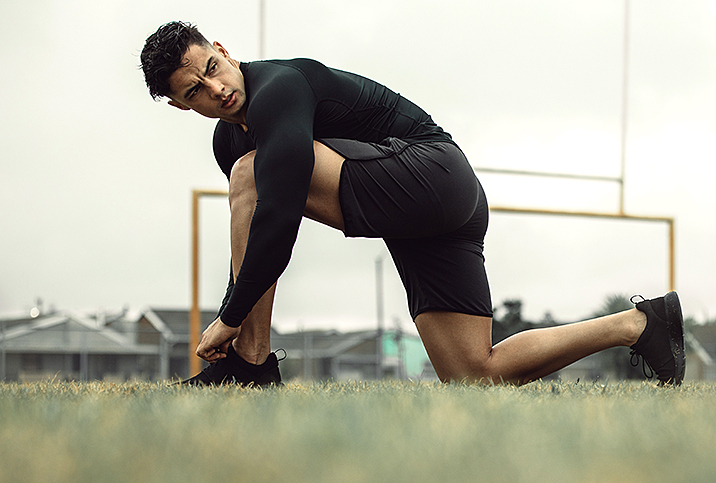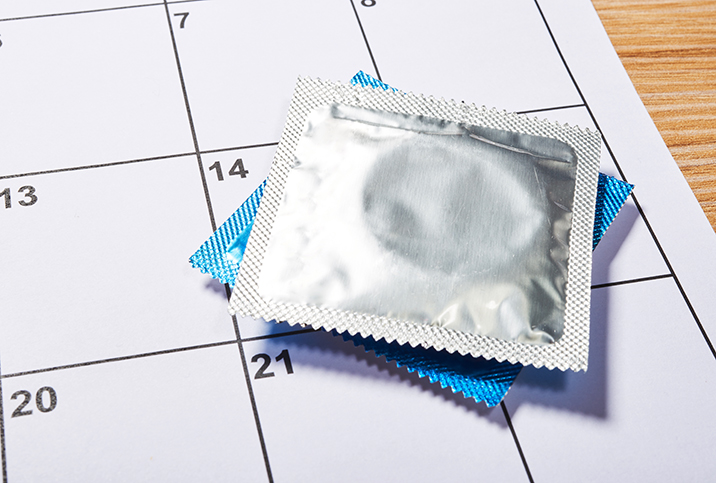Can Sex Before the 'Big Game' Ruin Your Performance?

For millennia, people have assumed that peak athletic performance and sexual intimacy don’t mesh for a multitude of reasons. From the days of the ancient Greeks, competitors have spent evenings before a big event depriving themselves of pleasure in hopes—nay, in promise—of doing better on the field, in the ring or around the track. A more modern version of this legend is perpetuated in 1976's "Rocky" when the titular boxer's trainer, Mickey, shoos away a gaggle of attractive young fans as he confirms that "Women Weaken Legs."
It would be crushing for our collective human empathy, then, to find out that for all these centuries, competitors have been abstaining for no reason, right? Well, the data isn’t perfect, but it’s coming in steadily, and what it suggests runs counter to the common “wisdom” that we share over and over again about the relationship between sex and next-day performance.
The relationship: none.
Debunking notions about ejaculation and sports
We have more than six decades of modern research on the subject of sex and athletic performance—enough that you might assume science would have won out by now. But while 60 years sounds like a significant tally, advising abstinence for athletes has been the norm since the days of the ancient Olympic Games despite being based on little if any science.
Many cultures wrongly believed that, for instance, ejaculation draws testosterone out of the body, reducing aggression. But sex doesn’t sap your warrior’s heart, rob you of your spiritual stamina or undermine your heroic purity. Truth is, sex has little effect on the testosterone levels of athletes, according to a 2016 study in the journal Frontiers of Physiology.
What the science says about sex and athletic performance
You might assume sex could be “bad” for your stats in a few ways. First, that it could physically exhaust muscle groups, leading to a weakened effort on the field. But that’s more or less been debunked—the average married partner, for instance, only expends 25-50 calories during sex, or walking "the equivalent of two flights of stairs," according to a study detailing the effects before the night of a competition in the Clinical Journal of Sports Medicine. If two flights of stairs are enough to ruin you, sorry, but your "big game" wasn’t likely to go that well anyway.
"If athletes are too anxious and restless the night before an event, then sex may be a relaxing distraction."
Then there’s the question of "aggression"—would sex make you less alert, take the edge off? The answer to this one turns out to be contextual. According to the previously mentioned study, there’s an optimal level of "alertness/anxiety," and poorer performance could potentially be linked to either too much or too little of that alertness.
"If athletes are too anxious and restless the night before an event," the authors explained, "then sex may be a relaxing distraction. If they are already relaxed or, like some athletes, have little interest in sex the night before a big competition, then a good night's sleep is all they need."
When sex could impact your performance
Surprisingly, it’s not sex the night before that can wreak the most havoc on your athletic endeavors, but rather sex the morning of. A 2017 article in the Annals of Applied Sport Science found that sex didn’t really impact the big game when it finished at least 10-12 hours before the starting gun went off. However, the authors did find that sex just a few hours before performance can have negative "psychological or physiological effects of athletic performance."
A little late morning sex might have big implications, but they’re not necessarily tied to the act itself. Most of the deep studies on this subject have concluded that the current body of research lacks rigor and that further research is needed, with more controls.
How to plan sex around the big game
Sex doesn’t need to be avoided before the competition, but that’s not to say you shouldn’t still try and balance your calendar. If you’re trying to optimize your ability to compete with your bedroom time, there are a few key questions you should be asking.
The first is how sex affects your sleep. If you’re off to dreamland moments after climaxing, sex the night before will actually help you get a great night’s sleep—a huge benefit. But if you’re prone to lie awake and stare shamefully at the ceiling after doing the deed, it might be best to plan for a celebratory romp the next night, just to avoid missing some much-needed rest.
If you and your partner have sex most nights, don’t abstain intentionally before a competition.
The next question you should ponder is how active you plan to be. While most research has found that basic, vanilla sex isn’t going to put much of a strain on your cardiovascular system, if you and your partner are into some acrobatics or enjoy high-stamina tantric sessions, your per-coitus calorie count is likely to be much higher than the average—as is your risk of injury.
The third might be a question of routine—that is, don't drastically change your regimen during training. For example, former Minnesota Vikings coach Bud Grant somewhat famously barred his players from seeing their wives and girlfriends the night before the team's four Super Bowl appearances, which may or may not have impacted its record in those games (0-4).
There are probably many factors involved in those losses—Willie Brown and the swarming Raiders defense, for one—but the lesson here is simple: Don’t undermine a normal routine. If you and your partner have sex most nights, don’t abstain intentionally before a competition.
The benefits of exercise on your sex life
While we’re on these two subjects, it’s probably a good time to remind you that exercise is generally healthy for your body, and according to dozens of studies, exercise increases libido and frequency of sex. However, the research showed that only moderate exercise enhances sexuality, while the more intense activities (marathons, triathlons) are “so fatiguing that they depress libido and impair sexual function.” In other words, too much exercise won’t just make your body sluggish and achy, it can also reduce your drive.
Final thoughts
If sex and performance do have a relationship, it’s that they’ve been too often overthought as possible links in athletic success. We suspect more sleep has been lost over trying to answer this question than competitions have been lost over a night of intimacy.
Maybe everything can be boiled down to two simple recommendations: Don’t let sex be an excuse for not exercising, and don’t let your need to win be an excuse for not having sex.
Here’s wishing you the best in both in the future.


















